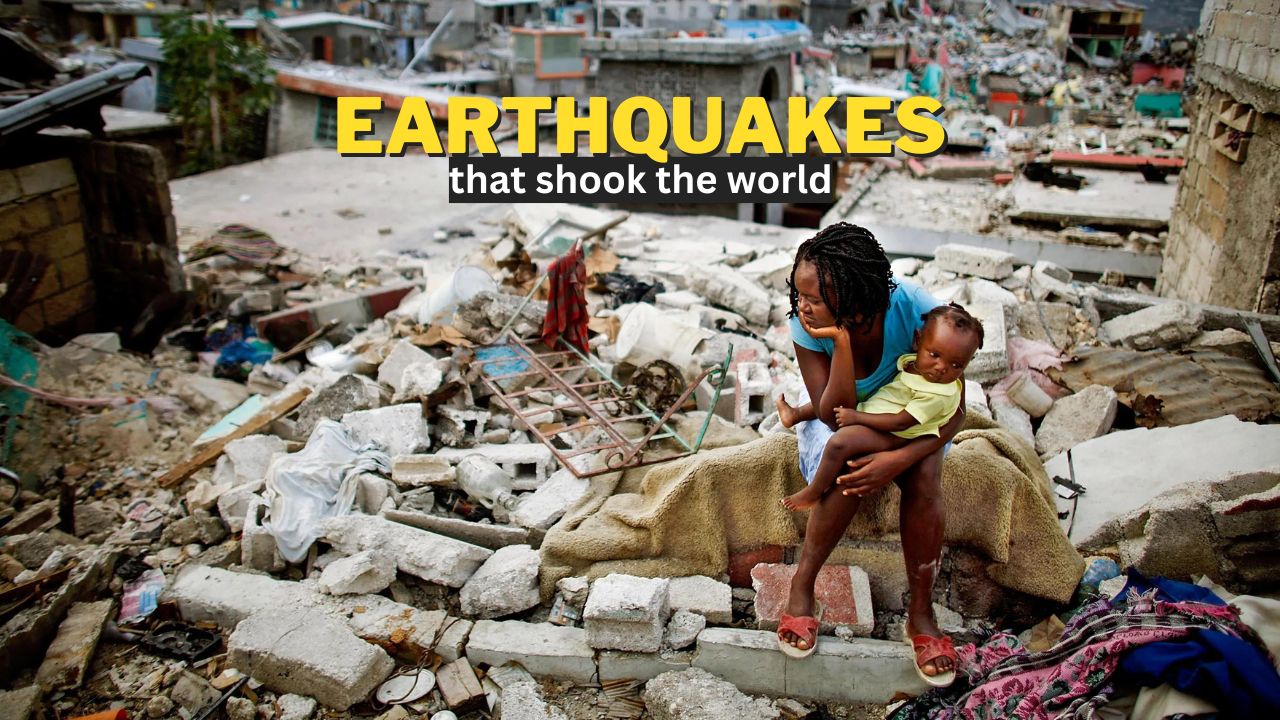
10 Biggest Earthquakes that shook the world
A strong 7.7-magnitude earthquake hit Taiwan shortly before 8 am local time on Wednesday, April 3, prompting tsunami warnings for the island as well as parts of Japan. The Philippines also issued a tsunami warning.
In its most general sense, the word earthquake is used to describe any seismic event that generates seismic waves. Earthquakes are primarily caused by geological faults, volcanic activity, landslides, and other seismic events.
Did you know that one of the earliest recorded earthquakes occurred in China in the year 1177 BCE, during the reign of King Wu Ding of the Shang Dynasty. The earthquake was said to have caused massive landslides, and was recorded in ancient Chinese texts.
While, earthquakes have occurred the world over through ages, let us take a look at the 10 biggest Earthquakes recorded:
Valdivia, Chile, 1960
The biggest earthquake ever recorded occurred in 1960 near the city of Valdivia, Chile. With a magnitude of 9.5, it was one of the deadliest earthquakes in history, killing an estimated 5,700.
Alaska, USA, 1964
The 1964 Alaska earthquake remains the second-most powerful recorded earthquake in history and the most powerful earthquake in US history. The Earthquake measured 9.2 on the Richter scale.
The city of Anchorage sustained large amounts of damage, being only 121km from the epicentre. Many buildings collapsed and pavements and roads sank.
Sumatra, Indonesia, 2004
This huge 9.1 earthquake caused rupture along a 1,300-km-long segment of the Sumatran megathrust plate boundary.
This huge rupture created a devastating tsunami wave that reached over 30m high. This terrifying wave hit coastal areas in 14 countries, killing an estimated 228,000 people with Indonesia, Sri Lanka, India and Thailand suffering the most deaths.
Tohoku, Japan, 2011
The Tohoku earthquake and tsunami occurred on 11 March 2011 and is the biggest earthquake recorded in Japan to date. It measured 9 on the Richter scale. Its epicentre was located approximately 72km off the northeast coast of Honshu (the largest island of Japan) and was so powerful it was later estimated that the Earth had been shifted on its axis by between 10 and 25cm, while Honshu was moved 2.4m east.
Severo-Kurilsk, Russia, 1952
The Earthquake measuring 9M on Richter scale struck the town of Severo-Kurilsk in Russia then known as USSR. The Earthquake triggered a major Tsunami on 5 November 1952. Nearly half of the population of this small town was wiped out when a huge 18m wave flattened the whole area.It was the most powerful earthquake ever recorded in Russia. Severo-Kurilsk is on the Kuril Islands, Russia, a small volcanic archipelago 1,300km northeast of Japan. In 1952 nearly half of the population of this small town was wiped out when a huge 18m wave flattened the whole area.
Following this disaster, the town was rebuilt on higher ground.
Chile, 2010
An 8.8 Mw earthquake rocked the coast of central Chile in the early hours of 27 February 2010, close to the coastal city of Concepcion. The intense shaking lasted around 3 minutes and was felt as far away as Sao Paulo, Brazil, 4,620km away.
Because the 2010 earthquake was so large and had been caused by a rupture under the ocean, tsunami warnings were issued in a total of 53 countries. The wave that was triggered reached both Japan and the Californian coast in the USA.
Rat Island, USA, 1965
An 8.7 Magnitude Earthquake was recorded at the Rat Island in USA in 1965. The Rat Islands are part of a wider chain of volcanic islands known collectively as the Aleutian Islands. These islands are located on the border between the Pacific and North American tectonic plates, and as a result, tend to experience a lot of earthquake activity.
An earthquake on Rat Island in 1965 caused a tsunami wave over 10m in height on Shemya Island 304km away.
Assam, India, 1950
The strongest earthquake ever recorded on land took place between Assam and Tibet, with an epicentre located in the Mishmi Hills of North-eastern India. This huge quake was caused by two continental plates (the Indian Plate and the Eurasian Plate) colliding.
In Tibet, this 8.6 Mw earthquake caused massive landslides and land cracks, and whole villages slid into rivers and were washed away. Meanwhile, India too experienced large amounts of damage where 70 villages were destroyed by landslides and the collapse of natural dams.
It is estimated that approximately 4,800 people were killed by this event, with over 1,500 in India and 3,300 in Tibet.
Aleutian Islands, USA, 1946
Another big earthquake to hit the Aleutian Islands was recorded in 1946. It measured 8.6 in Magnitude. It caused a widespread tsunami travelling at a reported 800km/h right across the Pacific Ocean causing widespread devastation.
This huge wave reached the Hawaiian Islands a mere 5 hours after the quake, covering a distance of over 3,900km. In the resulting carnage, 159 people were killed and many buildings were flattened.
Indian Ocean, 2012
11 April 2012, a huge 8.6 Magnitude earthquake 610km off the Banda Aceh coast was recorded, followed closely by another that registered 8.2 on the Richter scale. The strength and location of these earthquakes sparked a mass panic, sending terrified people fleeing from coastal areas. Luckily, actual damage was low with minor building damage reported in some areas, and the feared tsunami wave never actually materialised.
Renowned filmmaker Shyam Benegal, known for socially reflective films like Ankur, Nishant, and Bharat Ek…
The film maker breathed his last in Mumbai on Monday, December 23. December 23, 2024:…
A software engineer was duped into transferring ₹11.8 crore after fraudsters, posing as police officers,…
Renowned for his socially conscious films and groundbreaking storytelling, Shyam Benegal leaves behind an unparalleled…
December 23, 2024: The Board of Control for Cricket in India (BCCI) has issued a…
From trench coats over sarees to pairing blazers with mulmul drapes, Kangana Ranaut redefines power…